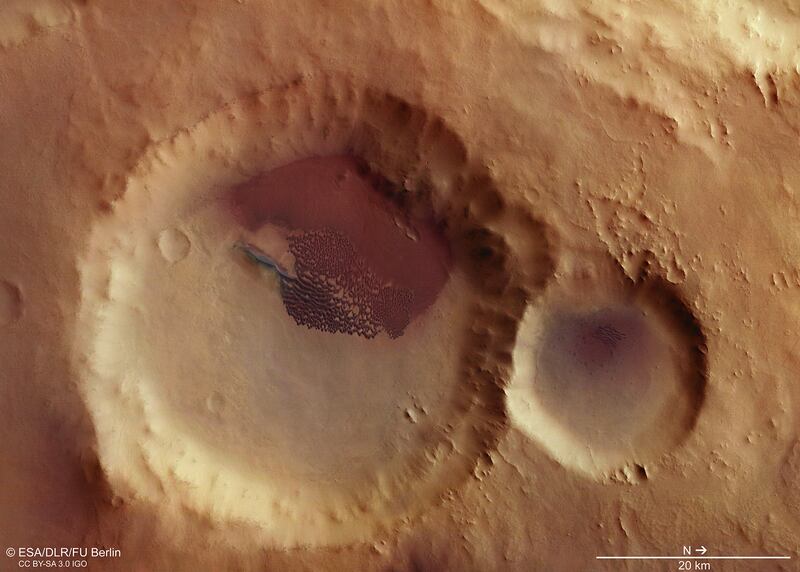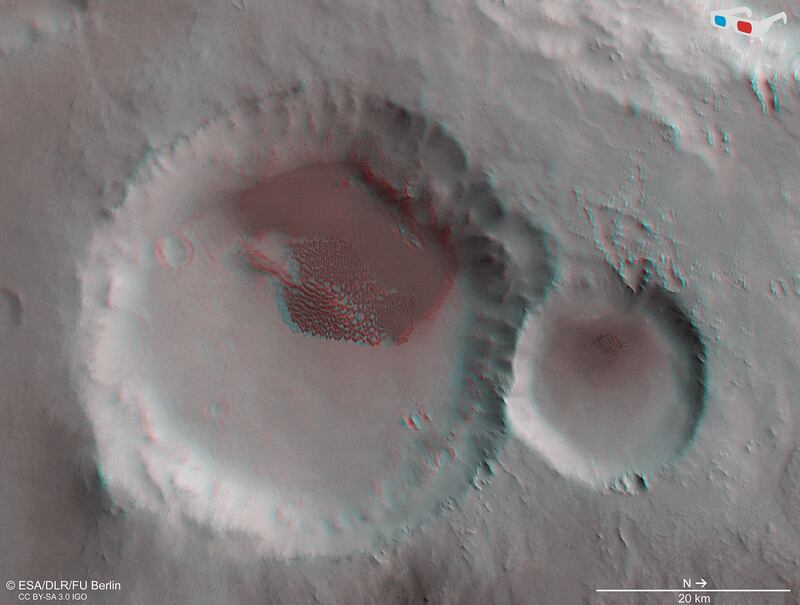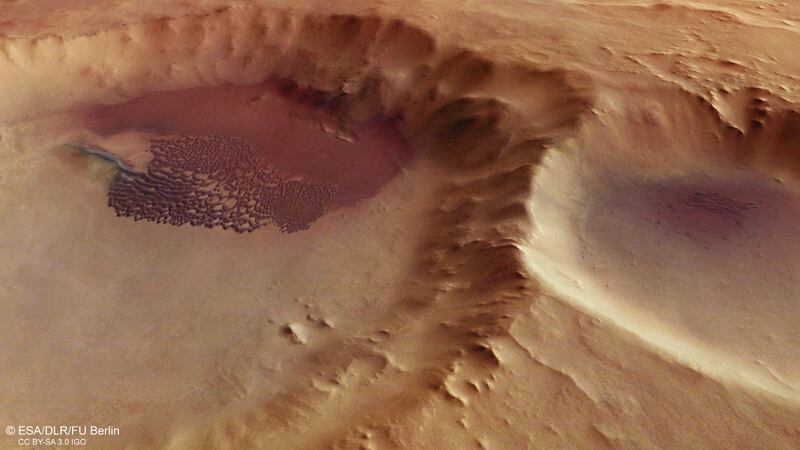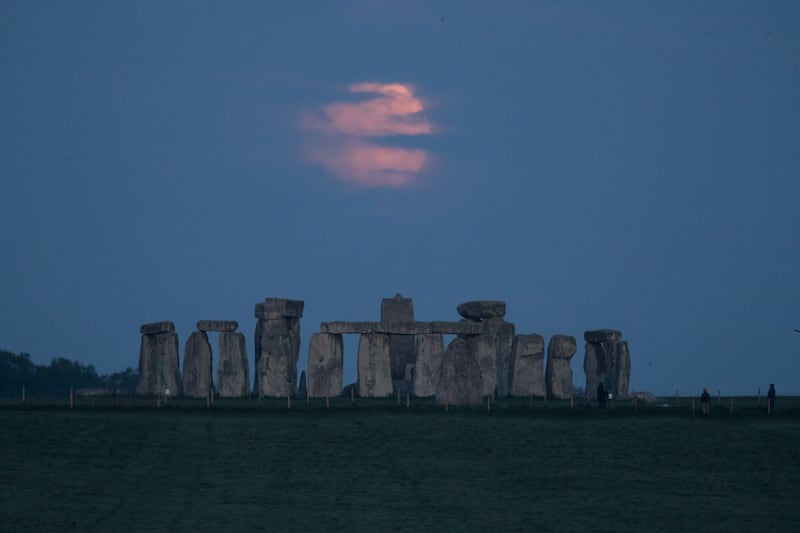The European Space Agency (ESA) has released stunning images of a windswept Mars.
The colourful pictures, taken by the ESA’s Mars Express, show dunes in huge impact craters.
This particular crater is 48km wide and on its floor can be seen sickle-shaped dunes known as barchans, and parallel ridges of dunes called transverse dunes.

The difference in colours is likely to be caused by sediments swept across the Martian landscape by what are thought to be south-easterly winds.
With the crater situated in Mars’ southern highlands – not too far south of Tharsis, the largest volcanic province on Mars and home to Olympus Mons – there’s likely to be vast amounts of basalt, fine pyroclastic deposits and ash to cover the crater’s floor.

Impact craters can act as traps for sediments that have been blown from elsewhere, and this particular region has a lot of craters that host a lot of dunes.
Barchans are the most common dune type found on Mars, and are also prevalent in Earth’s deserts. The shallower slope faces the wind, while the “horns” of the dune face the direction the wind is blowing.
That, combined with images of other dunes in the region, mean a south-eastern wind can be assumed.
The images were taken by the High Resolution Stereo Camera on Mars Express on May 16, with different channels used to create the varying perspectives and colour views.








